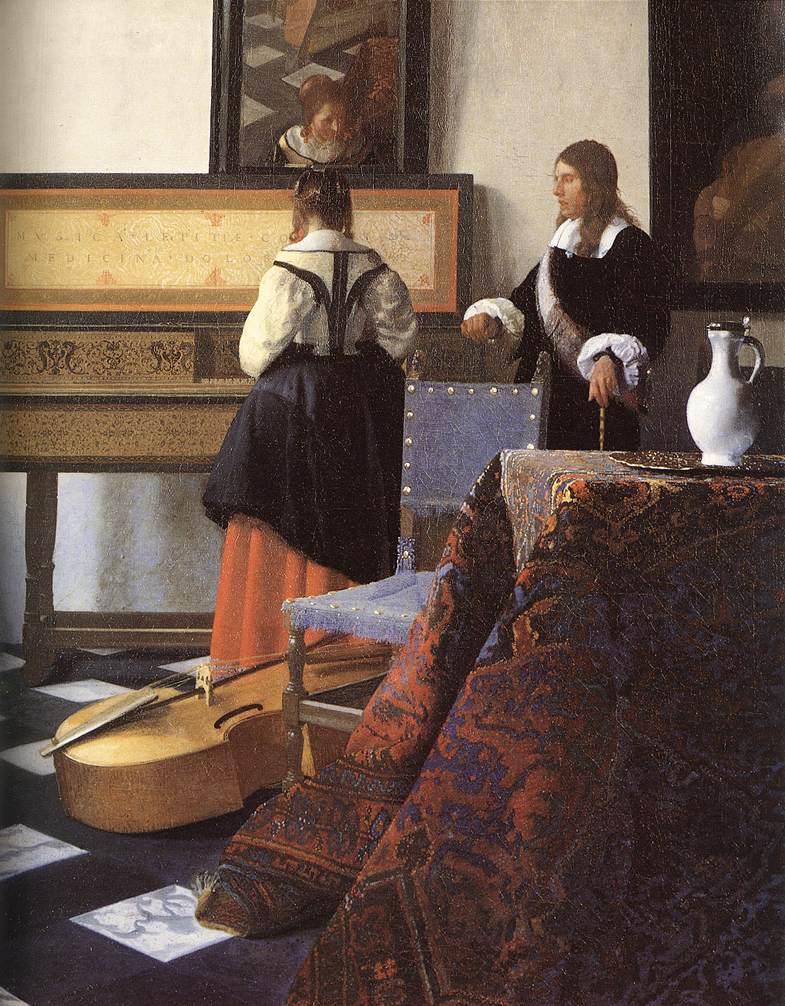
Historical
Oriental Rugs & Carpets
in Medieval European Paintings
Main Page
|
|
VERMEER, Johannes
(b. 1632, Delft, d. 1675, Delft)
A Lady at the Virginals with a Gentleman (detail)
1662-65
Oil on canvas
Buckingham Palace, London

In this imposing composition, Vermeer
changed for the first time his handling of space, by moving the human figures
and the center of the action to the far side of the room. The use of the
inverted Galilean telescope becomes evident if one examines the perspective and
the relative importance of the table at the right, covered with an Oriental rug,
upon which stands a white pitcher on a silver plate. From there on, the bass
viol lying on the floor and the figures at the clavecin recede into space.
Vermeer, who indicates his presence by including in the mirror-image on the back
wall parts of his easel and paint box, wants us to view the scene from afar: a
distant happening that we are allowed to watch as intruders, but in which we may
not participate. Vermeer outdoes even Frans van Mieris in the wealth of details.
The tile floor, the rug, and the ornamentation of the clavecin are rendered with
minute care. The same applies to the human figures. Altogether, the painting
lacks the nearness and intimacy of former works, and seems posed perhaps to
serve as model for a musical impromptu at some gathering of rhetoricians, who
were numerous at the time.